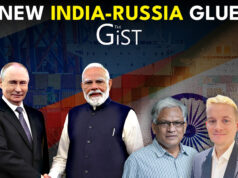Jill Suzanne Kornetsky has lived and worked in Afghanistan since 2015, running a consulting firm and spearheading agricultural development projects across the country. As an American woman navigating post-2021 Afghanistan under Taliban rule, she offers a perspective that sharply contrasts with dominant media narratives.
“Compared to ten years ago, very little has changed,” she says. Women still go about their business in Kabul, some wearing burqas, others in hijabs or niqabs. “What I hear on social media and what I see out my window don’t match up.”
Operating her nonprofit, Homestead Afghanistan, Jill finds it easier now to access rural areas. “It’s safer. The guys who used to block the roads are now the government. I no longer have to pay bribes or endure inappropriate requests to get work done—unlike under the previous regime,” she says.
Homestead Afghanistan aims to make 200,000 rural families self-sufficient over 25 years by offering a holistic agricultural model. “You can’t just hand out tomato seeds and walk away. We’re addressing poor soil, water scarcity, climate shocks, and the absence of infrastructure—problems the old aid model ignored.”
Despite funding challenges following the end of USAID’s operations, Jill, who’s also a certified anti-terrorism expert, remains undeterred. She is now pitching a pilot model in a single district to demonstrate the viability of self-reliant rural ecosystems.
She rejects simplistic portrayals of Afghanistan as a terrorist haven or Taliban rule as uniquely brutal. “People here prefer order over the corruption and lawlessness of the previous government. And most rural Afghans live today as they always have,” she explains.
On India’s role, she is unequivocal: “India is seen as a friend. The aid it provided—power plants, heritage restoration—was viewed as genuine, not political.”
As Afghanistan adjusts to its new normal, Kornetsky’s work represents a grounded, long-haul approach—one that trusts Afghans to define their own future.
In a career spanning three decades and counting, Ramananda (Ram to his friends) has been the foreign editor of The Telegraph, Outlook Magazine and the New Indian Express. He helped set up rediff.com’s editorial operations in San Jose and New York, helmed sify.com, and was the founder editor of India.com.
His work has featured in national and international publications like the Al Jazeera Centre for Studies, Global Times and Ashahi Shimbun. But his one constant over all these years, he says, has been the attempt to understand rising India’s place in the world.
He can rustle up a mean salad, his oil-less pepper chicken is to die for, and all it takes is some beer and rhythm and blues to rock his soul.
Talk to him about foreign and strategic affairs, media, South Asia, China, and of course India.




